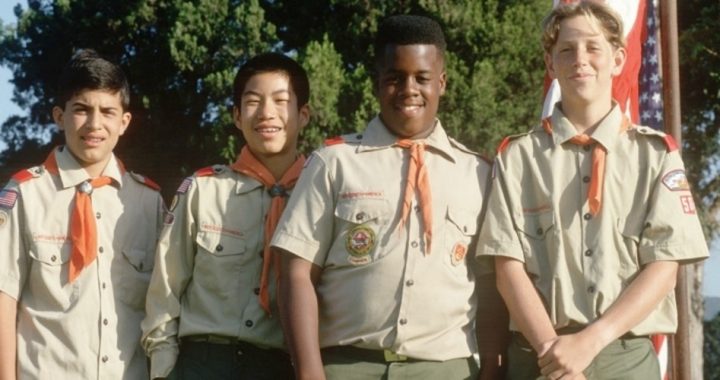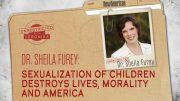
Following a two-year closed-door review, the Boy Scouts of America (BSA) has announced that it will continue with its policy of excluding practicing homosexuals from membership and leadership positions within its ranks.
“The vast majority of the parents of youth we serve value their rights to address issues of same-sex orientation within their family, with spiritual advisers, and at the appropriate time and in the right setting,” explained Bob Mazzuca, the Boy Scouts chief executive, in a prepared announcement about the decision. “While a majority of our membership agrees with our policy, we fully understand that no single policy will accommodate the many diverse views among our membership or society.”
While the BSA has long been a target of homosexual activists determined to force the organization to accept “gay” leaders, the issue came to a head in May when Boy Scout officials removed Jennifer Tyrrell as the leader of a Cub Scout troop in Bridgeport, Ohio when they discovered that she was a lesbian.
In an attempt to force the BSA to reinstate her, Tyrell launched a petition drive on Change.org that has garnered some 300,000 signatures from individuals who want to see the group allow “gay” leaders.
“I hope to deliver the message that hundreds of thousands of people want this changed,” Tyrell told CNN. “It’s not just me. It’s Scouts, former Scouts, Scout leaders, Scout masters, council members, everyone you could imagine, and they’re ready for this change, and they are tired of seeing people discriminated against.”
The BSA launched the review of its policy on homosexuals in 2010, convening a special committee, which it said included a diversity of perspectives and opinions, to determine whether or not to continue the policy. The committee determined after “extensive research” and “candid conversation,” that the prohibition “reflects the beliefs and perspectives of the BSA’s members, thereby allowing Scouting to remain focused on its mission and the work it is doing to serve more youth.”
While the BSA said that the vote of the special committee overseeing the decision was unanimous, according to the Associated Press at least two members of the organization’s executive board would like to see the policy changed.
The two members, Ernst & Young CEO James Turley and AT&T CEO Randall Stephenson, “have recently indicated they would try to work from within to change the membership policy,” reported AP. “Both of their companies have been commended by gay-rights groups for gay-friendly employment policies.”
In June, Turley released a statement on the policy, saying that he supported “the meaningful work of the Boy Scouts in preparing young people for adventure, leadership, learning, and service,” but noted: “the membership policy is not one I would personally endorse.” He added that “as I have done in leading Ernst & Young to being a most inclusive organization, I intend to continue to work from within the BSA Board to actively encourage dialogue and sustainable progress.”
Randall Stephenson is presently favored to take the reigns of the BSA executive board in 2014, and will no doubt face heavy lobbying from homosexual activists to change the group’s policy at that time. In a statement on the BSA’s decision to continue to bar homosexuals, AT&T said: “We don’t agree with every policy of every organization we support, nor would we expect them to agree with us on everything. Our belief is that change at any organization must come from within to be successful and sustainable.”
In response to the internal disagreement over the policy, the BSA said in a statement: “Scouting believes that good people can personally disagree on this topic and still work together to achieve the life-changing benefits to youth through Scouting. While not all board members may personally agree with this policy, and may choose a different direction for their own organizations, BSA leadership agrees this is the best policy for the organization.”
Response from homosexual groups to the BSA announcement was predictable. “With the country moving toward inclusion, the leaders of the Boy Scouts of America have instead sent a message to young people that only some of them are valued,” said Chad Griffin of the Human Rights Campaign, the nation’s premier homosexual activist group. “They’ve chosen to teach division and intolerance.”
Similarly, Darlene Nipper of the National Gay and Lesbian Task Force accused the Boy Scouts of turning “their backs on a chance to demonstrate fairness, exercise sound judgment, and serve as a role model for valuing others.”
In the “Gay Voices” section of the Huffington Post, columnist Michelangelo Signorile accused the Boy Scouts of sending the “dangerous message” that “gay kids don’t measure up” to the Scouts’ standards. The BSA policy is “devastating and dangerous,” insisted Signorile, “because it comes at a time when we’ve seen escalating reports of young people … taking their own lives, suicides by gay kids often victimized and brutalized by bullies. The bullies do it because they’ve been told that gay, lesbian, bisexual and transgender people are worthless and should be shunned.”
He charged that that the Scouts’ decision “tells young Americans that no one should accept gay people. If gays shouldn’t be allowed in the Boy Scouts, after all, why should they be allowed in your school or in your neighborhood?”
As other homosexual activists are doing, Signorile laid down the gauntlet for a renewed assault against the 102-year-old organization. “The Boy Scouts had a chance to redeem itself, but it should now be considered an enemy of civil rights and a reckless organization whose actions are furthering bullying and discrimination in America,” he cried. “Any parents in good conscious [sic] must realize what they are a party to by enrolling their kids in an organization whose policies would help drive the hostility and violence that gay kids experience every day in this country. And any corporation or organization that associates with the Boy Scouts must be made to realize the ugliness it is party to as well.”
Supporters of the BSA point out that the proscription against homosexuals in the organization, which exists to build solid character and integrity in young men, is inextricably tied to the official Boy Scout Oath, which requires that the conduct of the group’s members — as well as its leaders — remain “morally straight.”
In 2000, the U.S. Supreme Court understood the connection when it ruled that the Boy Scouts of America was within its rights to bar homosexuals from serving as Scout leaders. The High Court noted that enforcing traditional moral values was crucial to the organization’s “expressive message,” and to compel it to include homosexual leaders would violate its long-time values. Writing for the 5-4 majority in the case, Chief Justice William Rehnquist explained: “Forcing a group to accept certain members may impair the ability of the group to express those views and only those views, it intends to express.”
Photo: CIRCA 1993 — Multi-cultural group of Boy Scouts at Veteran’s Cemetery, Los Angeles, California via Shutterstock



